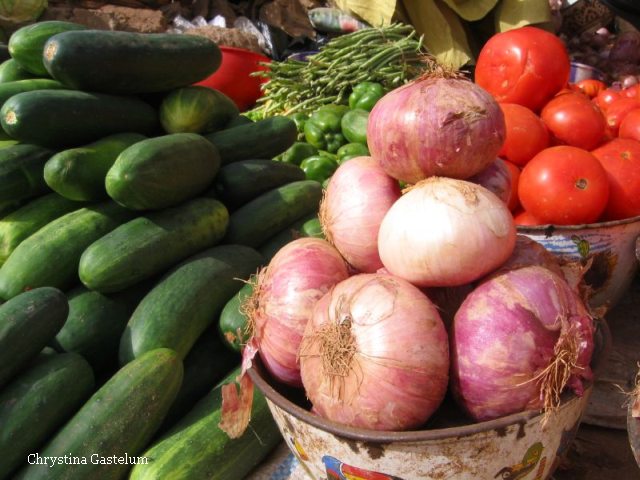The effects of Russia’s embargo on fruit and vegetables
The EC announces measures to support peach and nectarine production affected by the Russian embargo.

România Internațional, 12.08.2014, 13:16
Through Russia’s recent ban on imports of EU fruit and vegetables, in retaliation to the EU sanctions imposed on that country for supporting the pro-Russian separatists in Ukraine, the authorities in Moscow did a great harm to their fellow countrymen. They now have to find solutions to cover a 35% deficit of the domestic consumption.
As far as EU member countries are concerned, they are now seeking solutions to check the losses incurred by farmers. The peach and nectarine production is greatly affected since the EU annually produces 2.5 million tons of peaches and 1.2 million tons of nectarines. France, Italy, Spain and Greece are the biggest European producers of such fruit. To support them, as well as other producing countries, Brussels has announced exceptional measures to reduce the supply and boost the demand. For instance, the amount of fruit that can be withdrawn from markets and distributed for free to hospitals and prisons can be increased from 5 to 10%. “It is a first sign” — the European Commissioner for Agriculture, Romanian Dacian Ciolos said. He made it clear that if necessary, he would not hesitate to take the same measure to support other sectors dependent on exports to Russia.
Romania is not affected directly by Moscow’s blockage. However, according to the state secretary at the Ministry of Agriculture, George Turtoi, there might be indirect effects:
George Turtoi: “We do not export vegetables and fruit to the Russian market, so that is not the problem. The only risk would be for products from other EU states to come to Romania and create competition for the domestic production.”
Romanian farmers already note a drop in prices on the domestic market, especially in the prices of tomatoes and cucumbers. They claim that they can no longer sell this year’s production because of the in-flow of products initially export-bound to Russia. Cristi Rusu, director of the “Hortifruct” Association has more:
Cristi Rusu: “The tomato and cucumber crops are affected through the market blockage. Quantities of products amounting to a few hundred thousand tons and about 500 million Euros which were supposed to be exported to the Russian Federation, are now exported to EU countries, Romania included, which has triggered a 50-70% drop in the prices of vegetables.”
In the neighbouring Republic of Moldova, halting the imports of both fresh and tinned fruit and vegetables has more powerful effects. Russia has imposed severe sanctions on the ex-Soviet state with a predominantly Romanian-speaking population for its decision to join the EU and so, this year it might incur losses of about 70 million dollars, despite Romania’s aid and the doubling of its quotas for the community market.






























